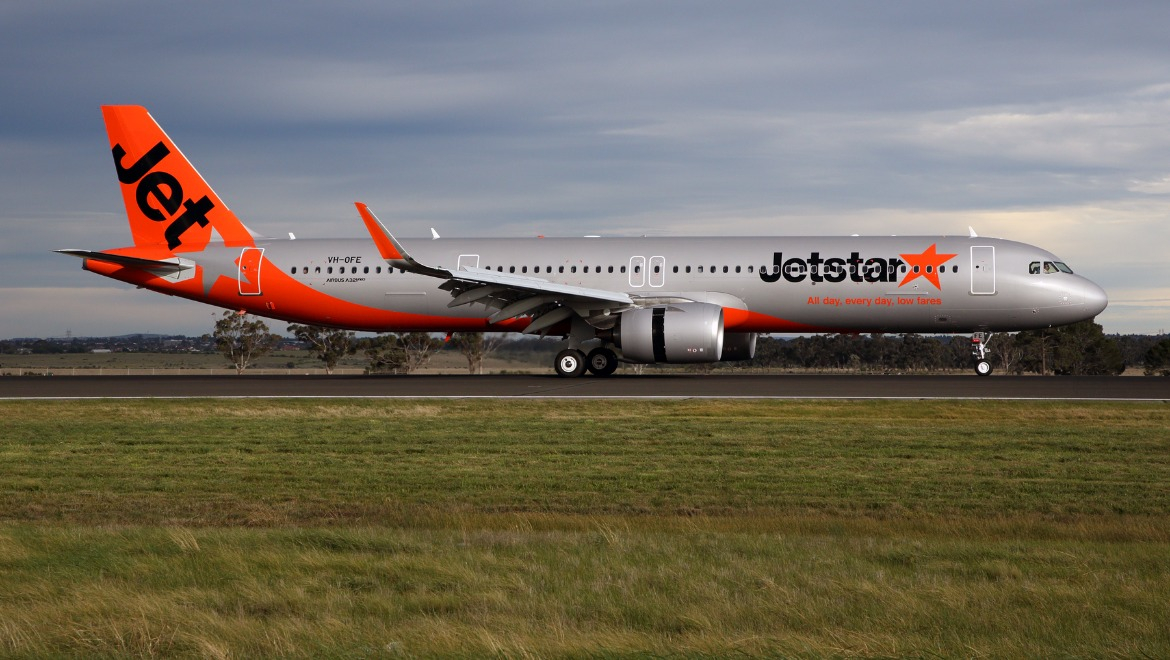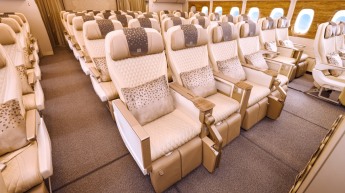
Qantas chief executive Alan Joyce has said multi-employer bargaining would have made it impossible for a business such as Jetstar to launch.
Speaking at an American Chamber of Commerce event on Monday, Joyce warned its reintroduction would “take us back to the 80s” and hamper innovation.
The legislation will be put before the House of Representatives on Thursday in the hope it will eventually travel through the senate by 1 December. Significantly, the TWU, aviation’s most powerful union, has already backed the move.
Joyce said Jetstar “changed the aviation market” by introducing efficiencies that allowed for prices as low as $35.
“We did set up Jetstar with the aim of democratising air travel and allowing millions of people to travel for the first time,” he said.
“If there was multi-employer bargaining at the time, I’m not sure that would have happened, and a lot of other things wouldn’t have happened.”
It’s thought the new laws would focus on low-paid industries and will crucially include the potential for workers to strike on behalf of those employed at other businesses.
It follows the Federal Court ruling last year that Qantas was wrong to outsource 2,000 ground handling roles. The TWU argued it meant employees were worse off because they were without the long-time enterprise agreements negotiated with Qantas.
The union’s national secretary, Michael Kaine, later told The Australian that multi-employer bargaining must include the potential for all workers to strike, otherwise companies will knock back demands for better working terms.
“It’s not about an uncontrolled upward spiral of wages and conditions,” he said.
“It’s about saving the economy from complete fragmentation where workers have no power (and) where the companies that engage them have no commercial power to dictate their future.
“That’s not good for economic growth. It’s certainly not good for making sure workers are getting a share of the economy.”
It comes after three major unions came together this month to claim Qantas’ 1 per cent wage increase for workers is nothing more than a “PR stunt”.
In a joint statement, the TWU, ASU and FAAA added the rise is “negligible” and its members are “severely fatigued”.
It followed the airline this month revealing it was targeting an underlying profit before tax of up to $1.3 billion in the first half of the current financial year in a remarkable post-pandemic turnaround.
As part of the announcement, Qantas said its annual wage increases would be adjusted from 2 to 3 per cent for 5,000 employees who have already finalised new enterprise agreements.
















Peter gardiner
says:Since it is unlikely that these new laws would apply to a company like Jetstar perhaps Alan Joyce could wind back the rhetoric a little bit.
Peter
says:Is QANTAS going to repay all the monies they received during the pandemic now they’re on schedule to make a (huge) profit?? :O
Craig
says:Why?
Are you going to ask Rex to do the same?
Rex got SEVEN times the mount of $ that QF got.
A goodly part of those funds were spent on leasing six former Virgin Boeing 738’s.
That’s NOT what the money was given it, to be used for.
Greg
says:The citizens of a number of Jetstar destinations from Bali to Japan to Hawaii would be thankful if Jetstar never existed.
They all suffer the “Jetstar Effect”.
Formerly, Australian visitors were respected and welcomed in these places. Whenever I travel overseas I consider myself an ambassador for my country. I try to give my guests the best impression of Australians. Many Aussie travellers are like me.
But cheap flights brought waves of ignorant, disrespectful drunken bogans, who failed to heed and respect local customs, culture and traditions, bumbling around giving offence at every turn. Couldn’t even be bothered to learn just a few words of the local language: hello, goodbye, please, thank you, yes, no.
I have travelled to all these locations. I have witnessed the transformation.
In Bali, dressing and acting immodestly, trampling offerings on the pavements; in Waikiki, failing to tip; in Japan, a nation with the lowest crime rate in the world, stealing and joyriding cars (because the keys have been left in them), fighting, busting up cafes, dancing on the roofs of police cars, staring curiously or lewdly at naked Japanese in onsens; and everywhere drunken bogans disgracing themselves.
Where once Aussies were greeted with a welcoming smile, now the metaphorical shutters go down. The welcoming smile has gone, replaced with guardedness and disappointment. “Oh, you’re Australian.”
Jetstar may have saved Qantas from the erosion of low-cost carriers and provided opportunities for travel to people in socio-economic situations, but it’s passengers have helped give all Aussies a bad name everywhere Jetstar flies.
Vannus
says:Ugly Aussies’ abroad existed long before Jetstar came onto the market.
It’s NOT the airline’s fault if its’ customers’ are bogans’.
This type of person started thanks to Compass. It allowed those who normally travelled by bus or train, could now afford to fly, unfortunately.
Every Country has a ‘horrible abroad’ element. That’s human nature, & despite your rhetoric above, it’ll NEVER stop, no matter which airline they travel with, or to whichever Country they fly.